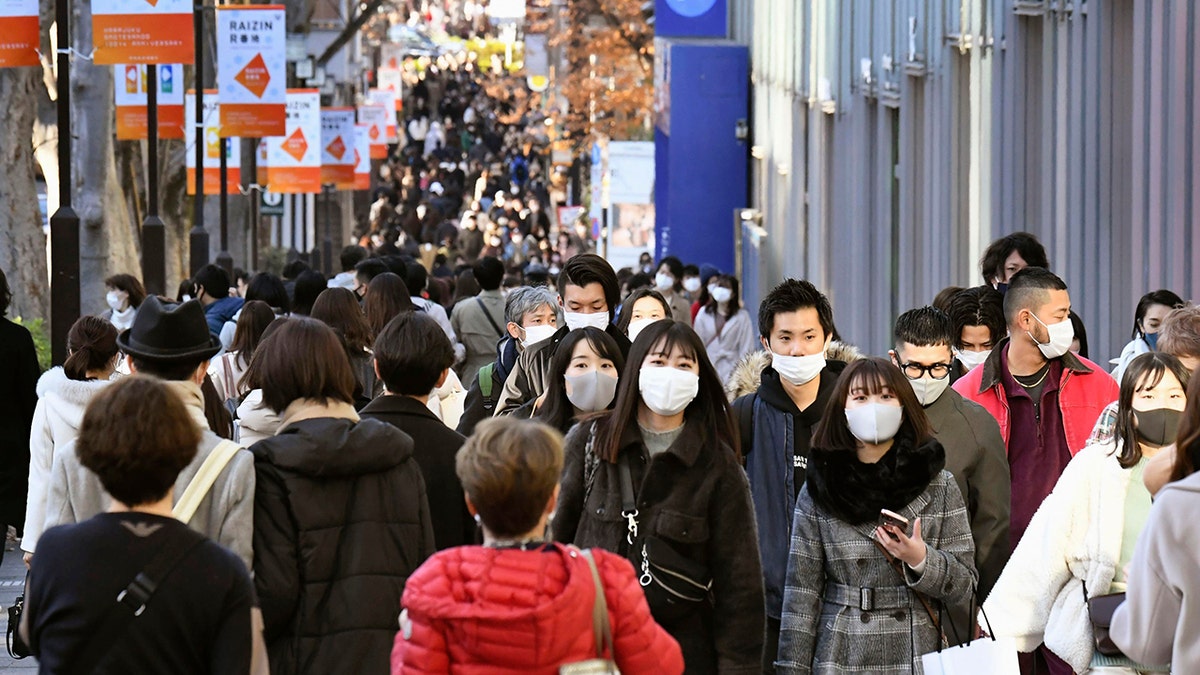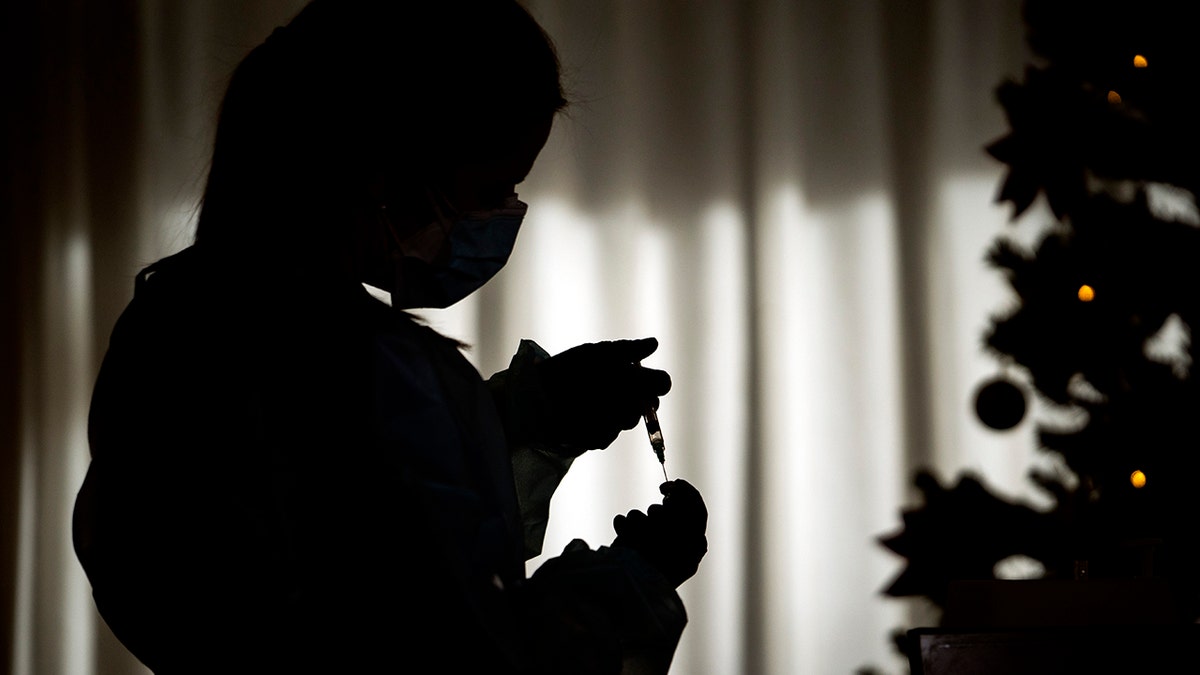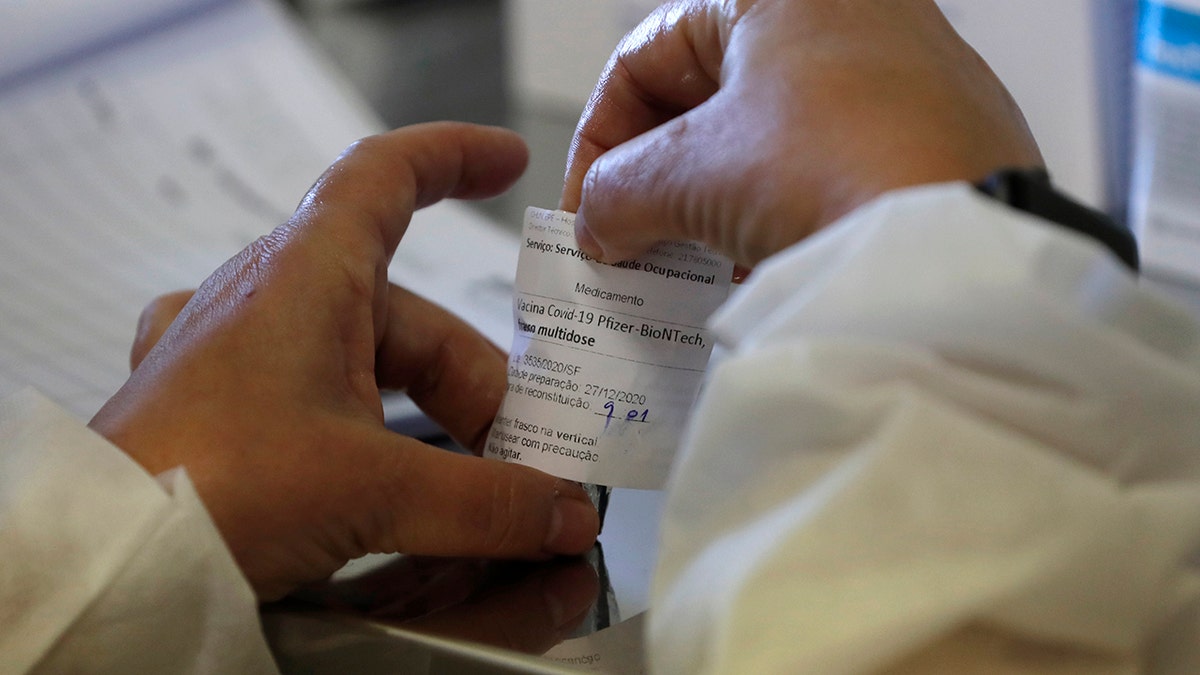New coronavirus strain believed to be more contagious
US to require coronavirus tests from UK travelers; insight from Dr. Marty Makary.
The fast-spreading coronavirus strain first identified in the United Kingdom has now reached Canada and Japan, after cases cropped up in some European counties.
Health officials in Canada said a couple in Ontario were found to have been infected with the coronavirus variant, however, they had no known travel history or high-risk contacts.
The couple have been placed in isolation and the provincial government said in a news release that there is no evidence to suggest that the vaccines approved by Health Canada will be any less effective against the new variant.
POPE ON CORONAVIRUS VACCINE: NEEDY, VULNERABLE MUST COME FIRST
Japan, meanwhile, is barring entry of all nonresident foreign nationals as a precaution against the new variant. The Foreign Ministry says the entry ban will start Monday and last though Jan. 31.

People wearing face masks to help curb the spread of the coronavirus walk on Aoyama shopping street in Tokyo Sunday, Dec. 27, 2020. Japan is barring entry of all nonresident foreign nationals as a precaution against a new and potentially more contagious coronavirus variant that has spread across Britain. The Foreign Ministry says the entry ban will start Monday and last through Jan. 31. (Yuka Ando/Kyodo News via AP)
Last week, the nation banned nonresident foreigners from Britain and South Africa after confirming the new variant in seven people over the last two days – five from Britain tested positive at airports and two others in Tokyo.
Japan is also suspending the exemption of a 14-day quarantine for Japanese nationals and resident foreigners in a short-track program that began in November. The entrants now must carry proof of a negative test 72 hours prior to departure for Japan and self-isolate for two weeks after arrival.
Several European countries – including Spain, Switzerland, Sweden and France – reported infections linked to people who had recently arrived from the U.K.

Nurse Idoia Crespo prepares a vaccine against the Coronavirus at a nursing home in l'Hospitalet de Llobregat in Barcelona, Spain, on Sunday, Dec. 27, 2020. The first shipments of coronavirus vaccines developed by BioNTech and Pfizer have arrived across the European Union, authorities started to vaccinate the most vulnerable people in a coordinated effort on Sunday. (AP Photo/Emilio Morenatti)
In Spain, four cases were confirmed in Madrid. None of the patients, all of whom had traveled from the U.K., were seriously ill.
Switzerland, which has kept its ski slopes open to tourism over the winter holidays, identified three cases – two of which are known to be British citizens who were among the thousands of tourists from Britain to arrive in the last couple of weeks.
In Sweden, a traveler who had returned from the U.K. is self-isolating after being diagnosed with the new strain.
FAST-SPREADING UK CORONAVIRUS VARIANT: ALL YOUR QUESTIONS ANSWERED
The variant, dubbed VUI-202012/01, has experts worried because it is believed to be up to 70% more transmissible. News of the variant triggered travel restrictions around the world, including the United States.
Scientists are probing whether the new strain is behind a spike of new coronavirus cases in California. On Christmas Eve, the state passed more than 2 million COVID-19 cases since the pandemic began.

A nurse prepares a dose of the Pfizer-BioNTech COVID-19 vaccine at the Santa Maria hospital in Lisbon, Sunday, Dec. 27, 2020. Portugal started its vaccination program on Sunday with medical personnel in reference hospitals across the country receiving the first shots. (AP Photo/Armando Franca)
"This happened devastatingly quickly. Everybody I talked to said this acceleration was beyond any model and any expectation, so then people say ‘What broke down?’ and I’ve got to think it’s partly the strain that was out there," Los Angeles Mayor Eric Garcetti said in an interview with The Los Angeles Times.
CLICK HERE TO GET THE FOX NEWS APP
The U.S., starting Monday, will require all airline passengers arriving from Britain to test negative for the coronavirus within 72 hours of their departure.
The new rule will apply to Americans as well as foreign citizens, and will require passengers to show proof of a negative result on a genetic test, known as a PCR, or antigen, test.
"This additional testing requirement will fortify our protection of the American public to improve their health and safety and ensure responsible international travel," the Centers for Disease Control and Prevention said in a statement.
The Associated Press contributed to this report.


